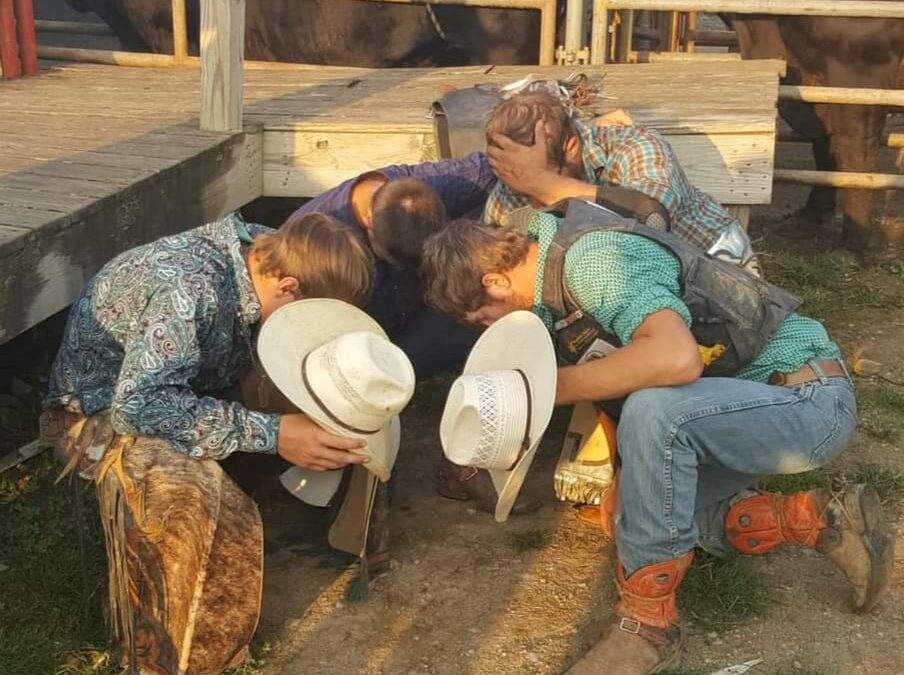
by admin | Nov 4, 2021 | Behind the Bucking Chutes
By Scott Hilgendorff / Cowboys of the Cross
I choose love.
Not words you look to hear from a cowboy with a reputation of toughness to uphold. But that’s not the love I’m talking about. I choose this love.
John 13:34 A new command I give you: Love one another. As I have loved you, so you must love one another.
Jesus loved me enough to die for me and take the punishment meant for my sins. All I have to do is believe, repent and ask to be forgiven and thanks to his love, I can have an eternal and perfect life in Heaven. His love was an action, not a feeling.
I choose love.
It’s a command from Jesus but in a world where we’re divided, fighting with and hating on each other, does he really need to command me?
I choose love. I choose to say, “Hey buddy, I know you barely scraped your fees together tonight to get jerked down like that. I’ve got some extra, let me buy your Taco Bell.”
I choose love. I choose to hold my tongue when the waitress just gave me attitude and instead, ask how I can pray for her when the check comes.
I choose love. I choose to spend some time coaching a gunsel instead of giving up on him or just laughing when he walks by with his spurs upside down and his chaps on an hour and a half before showtime.
I choose love. I choose to cheer for my rival who is about to win the team roping championship after my horse walked through barbwire this morning.
I choose love. I choose to stop by the hospital and check on the guy who got stomped even though he sucker-punched my traveling partner last week for talking to his girl a little too much after the rodeo.
I choose love. I choose to pray for you even though you may never know I’m doing it. I choose to tell others what is good about you or keep my mouth shut. I choose to help you without you knowing it isn’t convenient.
Do I blow it sometimes? Absolutely. Do I repent and apologize or make amends? I try to. Can I do better? Yep. Grace lets me mess it up but Jesus’s love motivates me to do better. I choose that love. I don’t have to like you to love you. You don’t have to like me for me to love you. This love is action and it’s a lot harder than hate or anger. It takes sacrifice, it takes time. It takes putting someone else first. I choose to do what’s hard. I choose to walk into the stampede of anger.
I choose love.
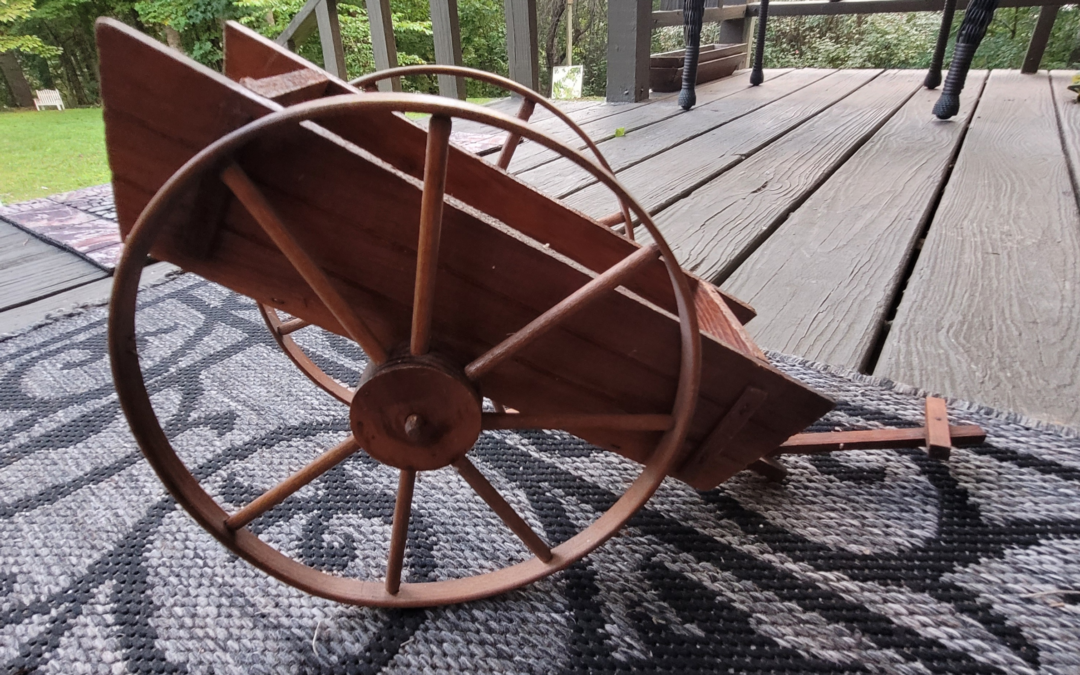
by admin | Sep 9, 2021 | Behind the Bucking Chutes
By Scott Hilgendorff / Cowboys of the Cross
It can become hard to serve others when your services makes them feel like they have to return the favor. The best advice I ever received about being able to serve others in our culture is to actually ask them to serve you first.
It sounds like it goes against what the Bible teaches but here’s what happens: if I’m the new guy in the neighborhood and I try to do something for my neighbors as a way to serve them and get to know them, we unintentionally put them in the position of needing to return the favor; they owe us.
Buuuuut, if you ask THEM to help YOU first, you are now in the position of owing them a favor and unless they are just horribly unfriendly people, most are going to be willing to help you when you ask. You still get to know them, a relationship with the neighbor can start and it will be easier to serve them when opportunities arise.
My friends that explained this to me had this happen with a new family that moved in the neighborhood. I don’t remember the details but they had an opportunity to just jump in and help the family with something fairly significant but after that, found the couple was avoiding them. It wasn’t until my friends tried asking them for help that they all then started talking freely across the street and my friends realized they were being avoided because the couple felt they were in debt for the help and felt awkward.
I’m still the new person on the mountain and have a handful of neighbors where I live near Gatlinburg. One of the couples are descendants of the original family that settled the mountain and eventually sold portions of it that have become a handful of homes and rental cabins that make up our little mountain neighborhood.
When I first got up there, I did a terrible job of meeting more than the closest neighbor who sits a bit behind and above me on the ridge we share.
For awhile, we were mostly just “hey neighbors” or “wave as you go by neighbors” so for the ones I waved “hey” to the most, I decided to bake some cookies as we got close to Christmas two years ago. It’s the only time I do something like that, making shortbread like my mom had made when I was little. I had put plates of them in three neighbor’s mailboxes with Christmas cards and a note with my contact information to sort of introduce myself.
One never said anything, another put a bunch of candy canes back in mine and another didn’t find theirs until a bear had knocked the mail box over that next summer because I put them in a long-since gone relative’s box by mistake. I got a panicked voicemail from the neighbor feeling terrible that they had never acknowledged the gift, not even knowing what it was that the bear had eaten. She apologized repeatedly when I called her back because she felt terrible and I ended up feeling terrible because it had made her feel like she was in an awkward spot.
So I tried the advice I had overlooked the first time around by dropping off cookies. With the neighbor closest to me I had an extended road trip that was taking me away for more than a few weeks and I was able to meet him by actually going over to ask him if I could get him to cut my lawn once while I was away. I offered to pay but he refused.
Perfect. I now owed him.
We have visited multiple times now since then and I’ve been able to help him pile wood with no sense of obligation anymore. We now are both comfortable asking for help if we need it.
But there was still that problem with the original mountain family. That wonderful old-timey culture is deeply rooted. The phone call about the Christmas card found months later at least opened the door for me to drop in the next time I saw them outside. Caught unprepared, the wife excused herself, went inside and came out with a jar of apple butter she had made back in the fall. I had created this need for her to give back. So after a trip home to visit family in Ontario, I came the next time with a box of cookies you can only get in Canada. Because I had expressed interest in it during our conversation, I left with the moon-phase guide to planting a garden they kept on their refrigerator. Next time, having learned she couldn’t eat much sugar, I came with some chips in a style you can only get in Canada and left with a wooden wagon planter from her porch.
Finally, a couple weeks ago, I was getting ready for another trip to Ohio and Ontario when my covid test for the border crossing came back inconclusive and I was going to have to go to town again to take another test. At the same time, my lawn tractor backfired and died on me right as the husband was driving by on his own to cut the lawns on the two rental cabins down from me. I really did need some help and was able to approach him to ask if he had enough gas and time to keep cutting one more while I ran back to town for the second test.
He wouldn’t accept offer of payment and also said he’d help figure out what was wrong with the mower when I get back.
My hope is that by finding myself in real need of help, this has broken the cycle of gift-giving and opened the door to where they won’t mind asking me for help or that I can pitch in when I see a need without having to be given something off their porch.
Philippians 2:3-4 Do nothing out of selfish ambition or vain conceit. Rather, in humility value others above yourselves, 4 not looking to your own interests but each of you to the interests of the others.
The idea of asking for help instead of offering it seems contrary to scripture except it can be an effective way to build a bridge that opens the door to more easily serve those neighbors and develop a closer relationship that allows the gospel to be shared.
Rodeo and bull riding give us all a great opportunity to ask for help and I think in that environment, it’s easier for us to do it either way. If we need help, we’re going to ask for it and if we see someone who needs help, most of us are pretty good at stepping up and helping without being asked. It’s just a natural way of doing things so it doesn’t create that sense of obligation.
But what are some ways we can either serve or ask to be helped in order to build connections with others around us outside the sport? We help others so we can show Jesus to them but however we do it, we need to build connections so we can also tell them who Jesus is and what he did for them.
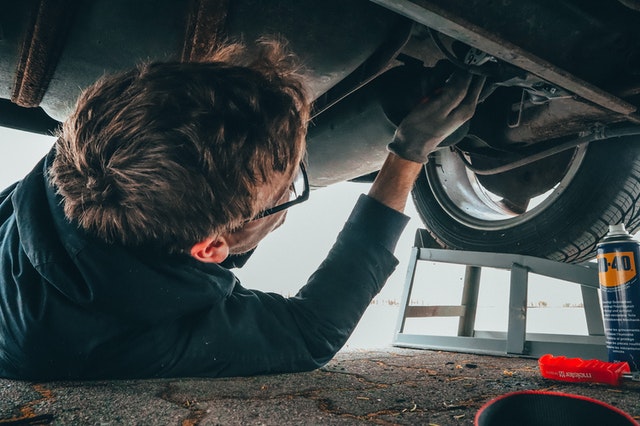
by admin | Aug 26, 2021 | Behind the Bucking Chutes
By Scott Hilgendorff / Cowboys of the Cross
1 Peter 3:8 Finally, all of you must live in harmony, be sympathetic, love as brothers, and be compassionate and humble. 9 do not repay evil with evil…
Reasons to be angry seem to be coming at us from every direction. As believers, we are instructed to live very differently from the would around us.
To live in harmony is the opposite of what a lot of us see in social media where we share our anger and add fuel to the flames of disunity instead of inviting someone to sit down and warm themselves by our campfire.
To be sympathetic would be to try to understand another person’s hurt and anger no matter how much we disagree with their reasons to feeling that way.
Loving as brothers is in action. Just like we would loan our rival in sudden need a bull rope or even a horse to mount, we are tasked to do good toward others who might even hate us.
To be compassionate and humble is to reach out help others who are nothing like us.
To be or carry out all of those actions and attitudes in the list isn’t just as simple as those illustrations but it gives us a place to start as we work to understand as Christians, we’re called to be different from the unbelieving world.
But wait, it gets even harder.
The second half of this chapter touches on being different from the world around us but it focuses on how being different can lead to suffering.
Jesus suffered on the cross on our behalf, taking the punishment meant for our sin. He did this so that by believing he was the son of God and did this for us, that if we would repent of our sin and ask to be forgiven, we could be saved from God’s wrath and instead have a perfect eternity in Heaven.
1 Peter 3:13-14 Who is going to harm you if you are eager to do good? 14 But even if you should suffer for what is right, you are blessed. “Do not fear their threats; do not be frightened.”
Because of what Jesus did for us, we should have a desire to do good. We may be all out feuding with someone at the rodeo but when we help them change out the flat tire on their stock trailer, they might have been the one that did it at the rodeo last weekend but this time, they aren’t likely to turn around and slash the tires on our truck. But take this as far as it can go, there are missionaries preaching the gospel in other countries who have been tortured and killed for preaching from the Bible. One of the worst things that could happen to us in North America so far could be a situation where a rodeo announcer loses a gig because the producer doesn’t want him doing an opening prayer or praying in Jesus’s name. Meanwhile there are Christians in Afghanistan facing an uncertain future in a culture that was already dangerous to begin with.
It’s hard for us to get our heads around it but the reality is, those who have lost their lives for their faith have gone on to their perfect life in Heaven while we’re still here in the sinful and broken world. Those who have suffered in other ways have Heaven to look forward to.
So what’s holding you back? Do good.

by admin | Aug 12, 2021 | Behind the Bucking Chutes
By Scott Hilgendorff / Cowboys of the Cross
Do we believe in God or karma? It can’t be both. If God is real, there is no karma.
When someone finally gets what we think they deserve, so many of us call it karma. The stock contractor that did you dirty in a deal loses his best bull in an accident down the intestate. Your barrel racing rival’s horse comes up lame hours before the finals after always seeming to get the same coveted spot in the draw week after week. Your ex-girlfriend ends up spending a weekend in jail because of something she got caught up in with the guy she was cheating on you with.
Faith in God and belief in karma are two very different things. You simply cannot believe God is in control while some other force of nature is affecting outcomes at the same time.
Christians, even the ones you don’t like, actually don’t get what they deserve and those who choose not to believe and turn their back on God, actually do.
One of the core truths within what we call the gospel is the understanding that God will punish sin. All sin. Rigging the draw or beating your girlfriend. It all gets judged by God and God alone. But, through His son, Jesus Christ, He gave us all a way to be in good standing with Him, no matter what we have done. Jesus took the punishment meant for our sins so that by believing he was the son of God, died on the cross for us and rose again to be with God in Heaven, we can find a way to be saved from our sins. By believing in who Jesus was and is and what he did for us, and then by recognizing and accepting that we are sinners, genuinely repenting of that sin and asking God to forgive us, we can be saved from the punishment and assured an eternal, perfect life in Heaven.
The consequences of sin without salvation through Jesus are eternal separation from God in Hell. It’s an even playing field where we can believe in God and embrace His plan for us to be saved with an eternity in Heaven or we can believe in karma or whatever else we want to believe in, but any of the rest of it leads us to Hell.
So why does something bad finally happen to that dirty rotten so-and-so? Why do all his wrongdoings finally catch up with him? The same reason the nicest cowboy everyone knows dies in the night because the generator was pumping carbon monoxide into the camper.
Karma didn’t catch up with both of them. The consequences of living in a fallen world did.
We live in a broken world because of the choice Adam and Eve made in the very beginning. The world was perfect until they messed up and now seemingly good people can end up doing some pretty horrible things, entire towns can burn up in a wild fire and the person you’re closest to can end up with cancer.It can be hard for us to imagine a perfect eternity, especially when we’re struggling or at our lowest.
It can be hard to realize that through all the struggles and heartaches we face in between the good times, that all of this is temporary and we only have to go through it a short time.
Romans 8:28 And we know that in all things God works for the good of those who love him, who have been called according to his purpose.
We may not understand why we’re going through something that seems absolutely horrible but we can trust that while sinful harm might come to us, God will still use it for our good. I would rather trust in that than karma.
Revelation 4:11 “Worthy are you, our Lord and God, to receive glory and honor and power, for you created all things, and by your will they existed and were created.”
I’m going with God.
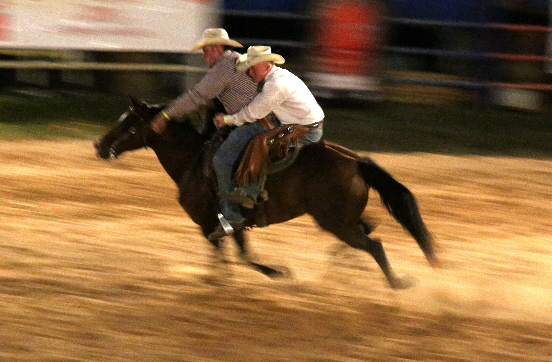
by admin | Jul 29, 2021 | Behind the Bucking Chutes
By Scott Hilgendorff / Cowboys of the Cross
Bull team competitions are growing in popularity. To win, the team needs a bull that will score high enough but a rider who can also cover him because the scores will be combined to find a winner. Too rank a bull will score higher at that end but if the bull rider bucks off, they can’t win. Too easy a bull but the rider covers, neither will have high enough of a score to win.
Everything has to work together perfectly to win but the key word here is “together.”
The stock contractor can’t win on his own and the bull rider can’t win on his own.
The stock contractor brings his talents in breeding, caring for and training a good bucking bull. The bull rider brings the skills he’s developed to go from being one-jumped out of the chute to being able to spur a 90-point ride.
1 Corinthians 12:4-7 Now there are varieties of gifts, but the same Spirit; 5 and there are varieties of service, but the same Lord; 6 and there are varieties of activities, but it is the same God who empowers them all in everyone. 7To each is given the manifestation of the Spirit for the common good.
Throughout this chapter in his letter to the church at Corinth, the apostle Paul is telling them about who they all have different gifts given to them by God. In this instance, he is describing specific spiritual gifts, as he makes the point that each person is needed despite being different from the others.
We’re all working together for a common good. God’s good.
For Christians, we all have a part to play
1Corinthians 12:12-20 Just as a body, though one, has many parts, but all its many parts form one body, so it is with Christ. 13 For we were all baptized by one Spirit so as to form one body—whether Jews or Gentiles, slave or free—and we were all given the one Spirit to drink. 14 Even so the body is not made up of one part but of many.
15 Now if the foot should say, “Because I am not a hand, I do not belong to the body,” it would not for that reason stop being part of the body. 16 And if the ear should say, “Because I am not an eye, I do not belong to the body,” it would not for that reason stop being part of the body. 17 If the whole body were an eye, where would the sense of hearing be? If the whole body were an ear, where would the sense of smell be? 18 But in fact God has placed the parts in the body, every one of them, just as he wanted them to be. 19 If they were all one part, where would the body be? 20 As it is, there are many parts, but one body.
With descriptions of different body parts instead of different gifts, Paul is reminding the church how they all are part of the body of Christ. Even though we have different gifts, we all serve the same God who has put us where He wants us to be and will use each of us for His purpose.
A common argument that comes up between contestants and producers is when a fair board wants to charge the contestants admission. The cowboys are quick to point out there isn’t a show without them because the crowd is coming to see them. The producer has to point out there isn’t a show without the committee. And nothing happens for anyone without back pen workers and a crew to set the whole thing up.
Everyone has a vital part to play for the show to succeed.
Everyone has a vital part to play within the body of Christ.
As Christians, we know that even as a stock contractor, event producer or rodeo contestant, our tasks, given to us by Jesus, are to love others, share the gospel and teach others. We also know that in everything we do, we’re meant to glorify God. These are part of the “common good” we can be working toward together.
Just like we have all make up different parts in the success of a show, we all serve Jesus together in our own ways. You might be the person who is skilled at starting a conversation with strangers and your friend might be drawn to helping others. On the way to the rodeo, he stops to help the family whose car is broke down at the side of the road and while he changes a tire, you’re the person who ends up telling them about Jesus.
We all have a part to play but we all serve Jesus together knowing it’s God who puts all the parts together.

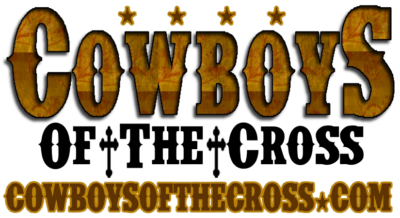




Recent Comments